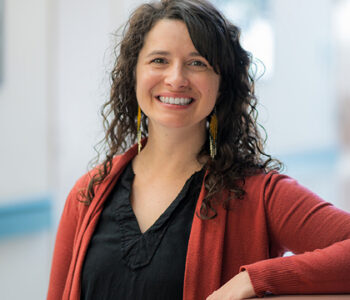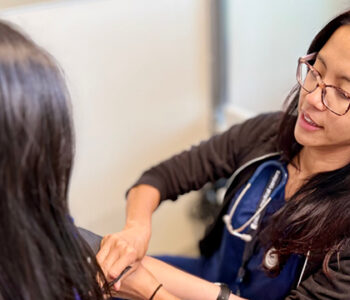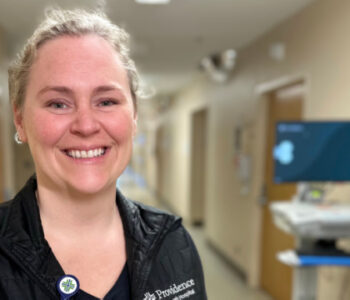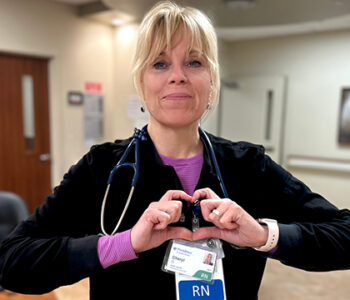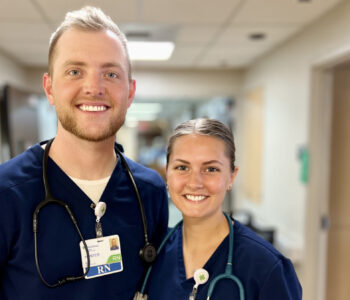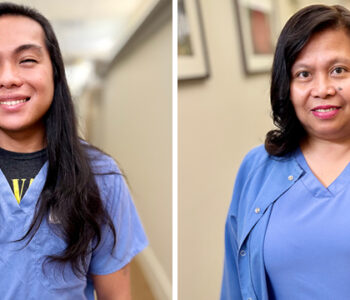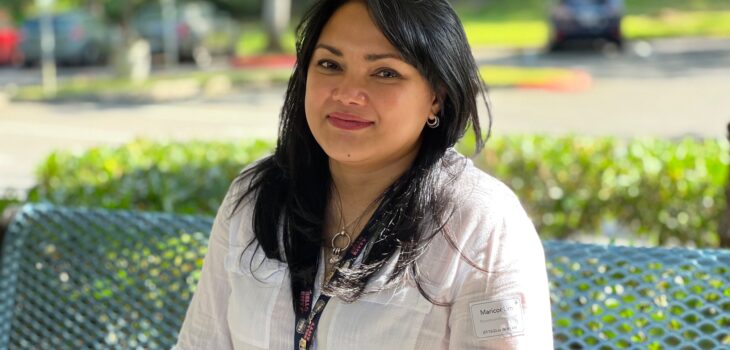 Benefits Spotlight
Benefits Spotlight
One caregiver’s plight to change how people talk about skilled nursing
October 18, 2022
Maricor Lim is on a mission to change perceptions about skilled nursing facilities, one connection at a time. We spoke recently with this myth-busting Administrator at Providence Marianwood in Issaquah, Washington, about perceptions of skilled nursing facilities before and after the pandemic, her journey from doctor of physical therapy to administration, and the best parts of working in skilled nursing today.
Skilled nursing today is not your grandmother’s “old folks’ home”
Maricor, who has worked as a physical therapist, director of rehabilitation, and now, administrator, says there needs to be a major mindset shift about what skilled nursing is—and isn’t. She says a common misperception about skilled nursing facilities is that they’re exclusively where people go for end-of-life care. This is untrue, says Maricor. “You don’t go to a skilled nursing facility to end your journey; you go there to continue it.”
Maricor came to the U.S. from the Philippines in 2004 and to Providence in 2012 and believes our language and perception around skilled nursing needs to change. Through her daily work, speaking with current and prospective patients and their families, and being involved in her community, she does her best to educate others, one conversation at a time.
“Like many skilled nursing facilities, Providence Marianwood offers two types of care,” says Maricor. “There’s the transitional care unit, where patients from hospitals that need rehab or 24-hour nursing care after their hospitalization come for in-house therapy services, such as physical or speech therapy. Then there’s the extended care unit for patients that need a longer length of stay because caregivers are still working on helping them safely return to the community.”
Maricor explains that extended care is often required because the level of care patients need is something their family cannot provide, they may not have the capacity to live independently, or they may not have the resources to live in the community. “We want to ensure that they transition back to the community safely and aren’t hospitalized again. We’re only a transition. We’re an important part of that post-acute continuum of care.”
Skilled nurses are just that—skilled
According to Maricor, people are often surprised by the level of expertise skilled nurses possess. She says, “I found that, when compared to working in a skilled nursing facility, hospital work is easy. This is highly specialized nursing care. People come here with any clinical diagnosis you see in the hospital, such as spinal cord injury or a wound that needs care. But our services go beyond the single encounter.”
Maricor says skilled nursing provides an opportunity for greater impact. “You actually have the capacity to treat the whole person. Not just their physical ailments, but mind, body and soul. You need to know more about their social history. You need to know more about their preferences. You get to provide your input and resources so they can make an informed decision about what’s good for them. It’s not just one encounter. It’s multiple encounters, and you can see the progression, how successful they become from start to finish. Maybe they came in via a stretcher, get out of here walking, and now they’re out there enjoying the community. It’s very rewarding.”
Providence Marianwood was a trailblazer during the pandemic
Like most skilled nursing facilities nationwide, Providence Marianwood lost patients during the pandemic. But Maricor and her team used their devastation to create positive change that benefitted the entire skilled nursing industry.
“One of our residents was sick and needed to transfer to the hospital to get Covid treatment. But she said, ‘I don’t want to go to the hospital. This is my home.’ And because of that, we decided to do everything we could to get that treatment for her here at Providence Marianwood. The medication was not approved to be provided in skilled nursing facilities then, and we were told we’d have to cover the cost of the medication since it was only approved for use in an acute hospital setting at that time. But we did not think about those financial implications; we thought of our patients. We were the first skilled nursing facility in the nation to provide that treatment in-house.”
Marianwood opened the door for other skilled nursing facilities across the country to provide the same level of care to their patients.
Creating deep connections
A big part of the job at a skilled nursing facility is relationship building. “You build a camaraderie with the patient and their family members throughout their stay here. You can see the impact you make on the patient and the family members—and that extends out into the community.”
Maricor says there’s diversity in terms of culture, relationships, backgrounds and stories. “The more you get to know the patient stories, it’s just so endearing and you learn so much from them. They develop community among themselves, too. And I tell you, they all have funny stories. And they don’t have filters.”
Maricor laughs when she tells a story of one patient who would tease her if she were wearing ripped jeans. “She’ll tease me and say, ‘Do you need me to sew that for you?’ Or, ‘Are you not getting paid enough? Why can you not afford full pants?’ She’s so funny. They all are; they’re amazing. I mean it. The best part of my day is really getting to have conversations with them.”
And those conversations are extending to the next generation of skilled nurses through a Nursing Career Pathway program with local high schools and technical colleges. Students get a six-week paid internship the summer before their senior year, which exposes them to the basics of healthcare. If they continue in the program, they can obtain their CNA certificate during school, and if hired at Providence, benefits-eligible caregivers can receive tuition reimbursement as they obtain their RN certification if desired. Says Maricor, “We’re in an area of tech. We have Microsoft, Google and Amazon. We want them to see the importance of health care and, specifically, skilled nursing.”
Maricor’s key takeaway for people is that skilled nursing facilities are a steppingstone in patients’ journeys. She says, “We’re adding to their lives instead of assuming that this is the end of their lives.”
Interested in working with us? Check out roles at Providence skilled nursing facilities or Providence Marianwood specifically.

